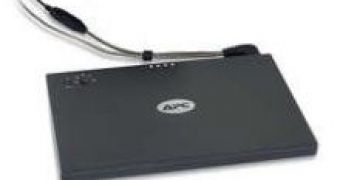I guess that the scandal of the exploding laptop batteries has cooled down some technological areas concerning mobile PC parts producing. And although safer batteries standards are almost on their way of becoming applicable, it seems that there is no future for lithium ion cells since no extra power capabilities can be further crammed into the same space. This idea seems to itch a lot especially when Sony officials come to acknowledge that there's no going back, at least when regarding the exploding batteries issue.
Large notebook manufacturers are already turning their heads towards lithium polymer batteries. During a meeting with the reporters regarding this subject, Sony Electronics President Stan Glasgow said:
"Lithium polymer batteries use lithium as an active ingredient. Lithium is a volatile material, but the lithium in these batteries isn't packed into cells as it is in lithium ion batteries. Instead, it is contained in a polymer gel. These gel batteries can't provide the same sort of energy density as lithium ion batteries, but that's now a plus."
He also admitted that: "There is not too much more power we want to cram into lithium ion." Moreover, the statements rolled out the fact that most manufacturers and in particular Sony, have pushed the energy density of lithium ion batteries to their limits, motive for which when a short occurs inside the cells, it can set off a chain reaction and start a fire. Dell, Lenovo, Toshiba, Apple Computer and others, in conjunction with Sony, have recalled several millions of batteries because of this problem. And I guess they've had enough.
In the first years of their launch, polymer based batteries haven't been able to offer the same energy as their ion based counterparts, but they were smaller and more versatile because of their gel-based packing. Throughout time, the polymer based batteries have started to gain grounds mostly because gel-packing seems to help the designers produce smaller units. Some manufacturers (such as Sony Ericcson) are already using these batteries in phones. So it's just a question of time before laptops receive the same treatment.

 14 DAY TRIAL //
14 DAY TRIAL //